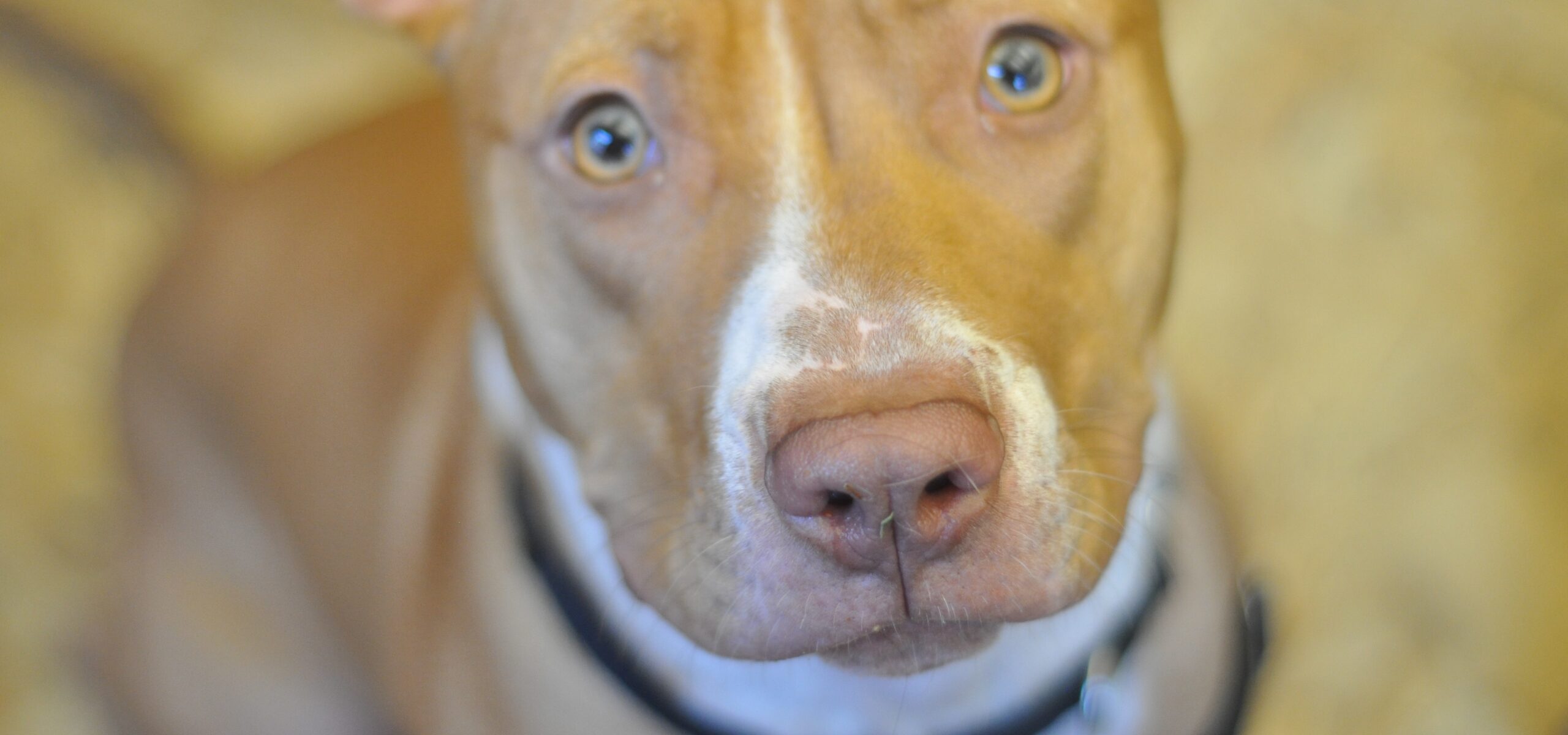
Do Dogs Feel Guilty?
Most people have walked into their home at least once and found their dog waiting for them with a look they interpret as guilty for some not yet discovered doggie misdeed. Did she eliminate on the carpet, chew up a favorite shoe, bark all day and disturb the neighbors? It could be. Or maybe, just like an innocent person sitting in front of a jury in a courtroom, the dog is worried about the situation and exhibiting body language that is meant to say something along the lines of “I’m happy you’re home, but nervous you’re going to punish me for something because you have in the past,” rather than “I am feeling so guilty for what I did.” If dogs had lawyers, they would surely advise them that a jury might be more likely to convict you if they think you look guilty, so hold your head up high, wag that tail and gosh darn it…look happy!
Bernie, a rescued 5 year-old English Cocker Spaniel, has been wrongly convicted on a number of occasions, so I decided to step in as her advocate during a recent lesson with her family. They insisted that when they walk in the door, if Bernie averts her eyes and her head, ears and tail are held lower than usual, she is feeling guilty. I explained that while there are certainly some similarities between human and animal behavior, there is also a tendency to take a superficial similarity and apply it in broad and inaccurate ways. With that said, while they may express a look that reminds us of what a person might look like when feeling guilty, guilt is not part of their emotional repertoire. A dog might certainly exhibit this sort of body language if she is in a situation where she believes punishment (or something else unpleasant) is imminent. But, rather than being a display of guilty feelings it is the dog’s way of showing they are no threat and more importantly hope to decrease the possibility that you might be one to them.
They were a tough jury, so I decided to employ some of the tactics I had seen on TV court shows. I would provide a demonstration to argue my case. As Bernie and I had a lovely, trusting relationship with no history of me reprimanding her I thought for expediency it might be best to enlist the help of one of the family members to prove my point. I asked them to walk out the front door and re-enter after 5 minutes, then to walk up to Bernie with their hands on their hips and a stern look on their face. Lo and behold, Bernie’s ears dropped lower than usual (and that is pretty low, considering she is an English Cocker Spaniel), and she not only averted her gaze, but turned her head completely away. If there had been a pile of sand nearby, I suspect she would have tried to imitate an Ostrich and hide her head in it.
I scanned the jury and was confident that I was headed towards triumph. I had clearly instilled reasonable doubt in the minds of everyone. Maybe her ‘guilty’ look was a pretty measly amount of evidence to make a conviction? Maybe she wasn’t feeling guilty after all? Maybe she was just a bit, dare we say it, scared? It seemed very likely that Bernie’s look of ‘guilt’ was a response to people’s body language and not necessarily an indication that she was making an association with any potential misdeed. Odds are, the family had at some point come home to find that Bernie had done something inappropriate. She may have been reprimanded and as a result become more sensitive about the family’s arrivals home, their body language or tone of voice. As a result, when they walk in the door, if they look or sound even a bit like they did when they reprimanded her in the past, she is more likely to display the ‘guilty’ look her family now saw for what it really was.
It had been a tough case, with a jury that seemed to have gone into the ‘courtroom’ with their minds made up. But, by the time I was ready to leave I was sure Bernie and I had won with a unanimous verdict of not guilty!
Explore Our Dog Training Courses
Educate your dog with Andrea Arden and her team.
New York | Los Angeles | Connecticut
Share
- Group Classes
- Private Lessons
- Virtual Training
- Puppy Play Groups
- Puppy Training
- Articles & Advice

